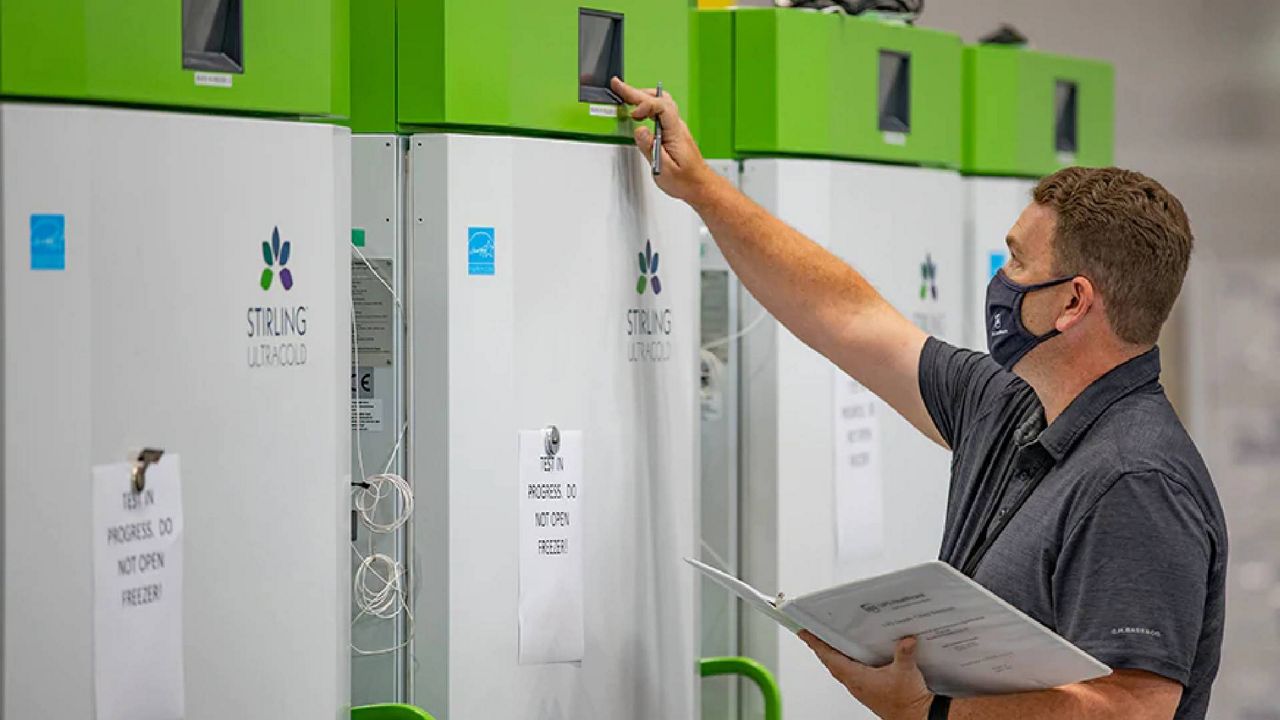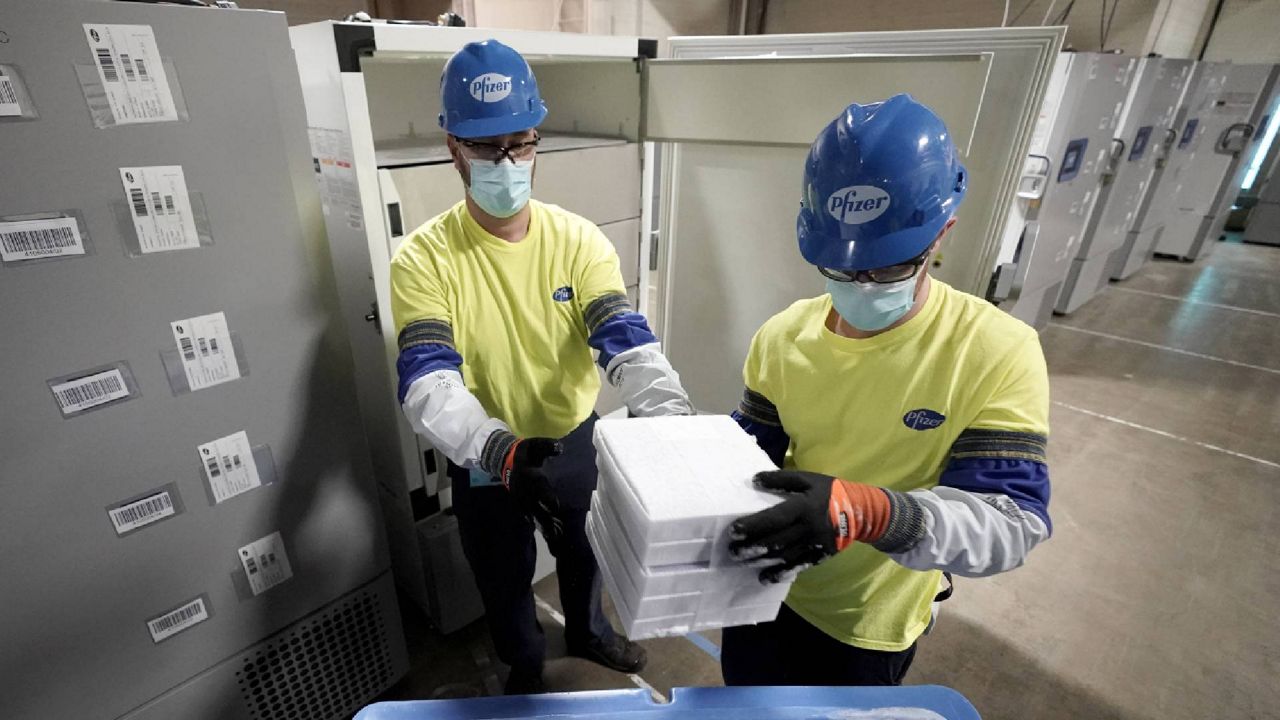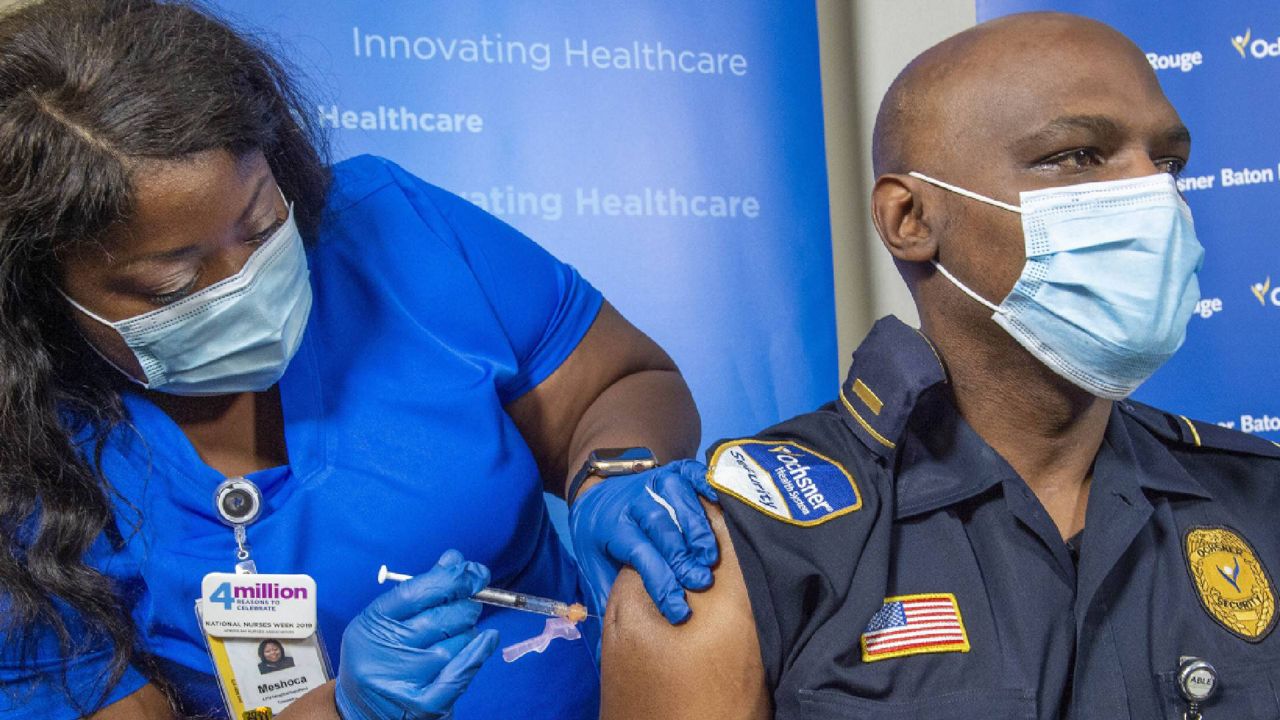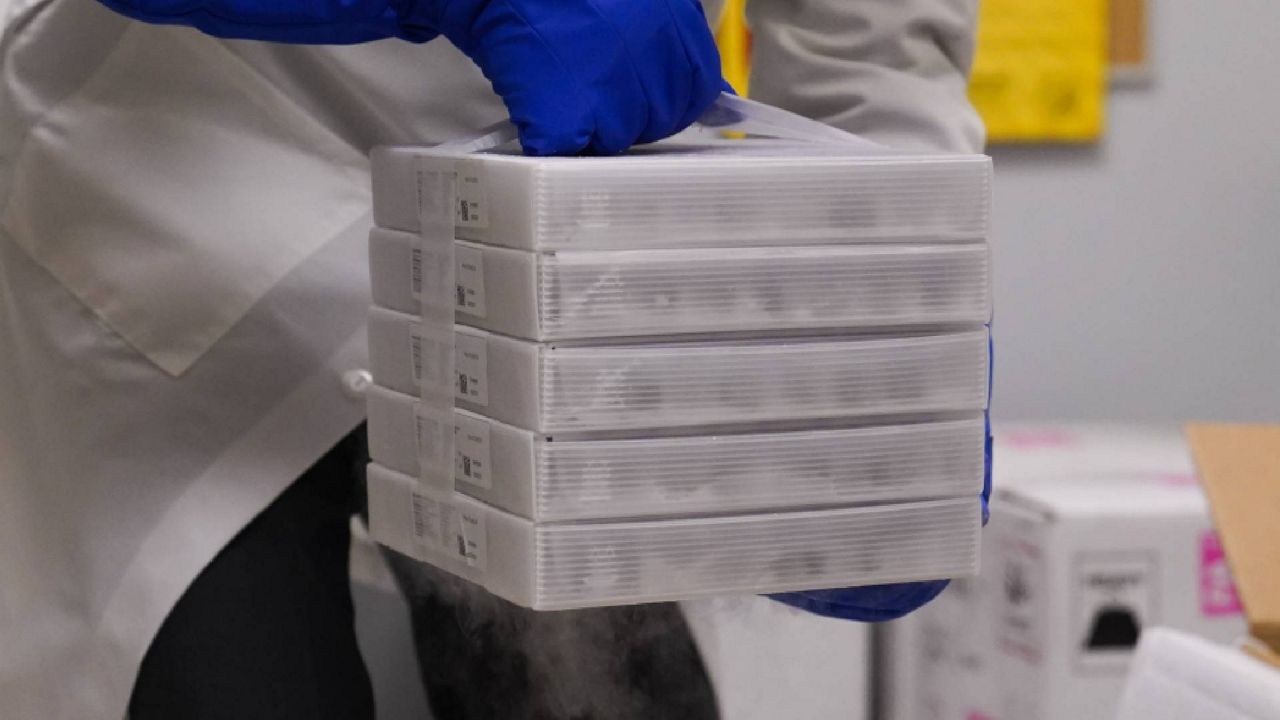Once Pfizer gets permission to begin shipping its vaccine, it will trigger a supply chain set up to deliver millions of doses across the country weekly, involving multiple tracking devices, thermometers, dry ice and the nation’s two major shipping companies.
Pfizer will ship doses directly from its facilities in Michigan and Wisconsin, and 2.9 million are set to go out in the first wave, with the number increasing each week, according to officials in charge of distribution.
Pfizer has more in stock, but those are being reserved as second doses for people who get vaccinated in the first wave, and they will be shipped by 21 days later.
Representatives for UPS and FedEx said they’ve been planning for the rollout since April, and they’re confident shipments will be timely and smooth, despite the sheer number of doses and despite launching distribution amid a busy holiday shipping season.
Pfizer designed custom shipping boxes for the vaccine, which must be stored at about -70°C. They can carry anywhere from 975 doses — the minimum order amount — to 5,000.
The box will have a layer of dry ice on the bottom, a thermal container to hold the vaccines on top of that, then another layer of dry ice, according to a presentation from Wes Wheeler, President of UPS Healthcare, at the White House this week.
UPS is now manufacturing dry ice itself, and it plans to send 42-pound boxes of dry ice to vaccination points the day after a shipment of doses. At the peak of vaccinations, Wheeler said he expects the company to be shipping 60,000 to 70,000 pounds of dry ice per day.
"The preparation for this has been intense," Jim Mayer, a spokesman for UPS, said Thursday. "We have been at this for months – planning; putting the right people, the right technology in place. At this point, UPS is 100% ready to go.”
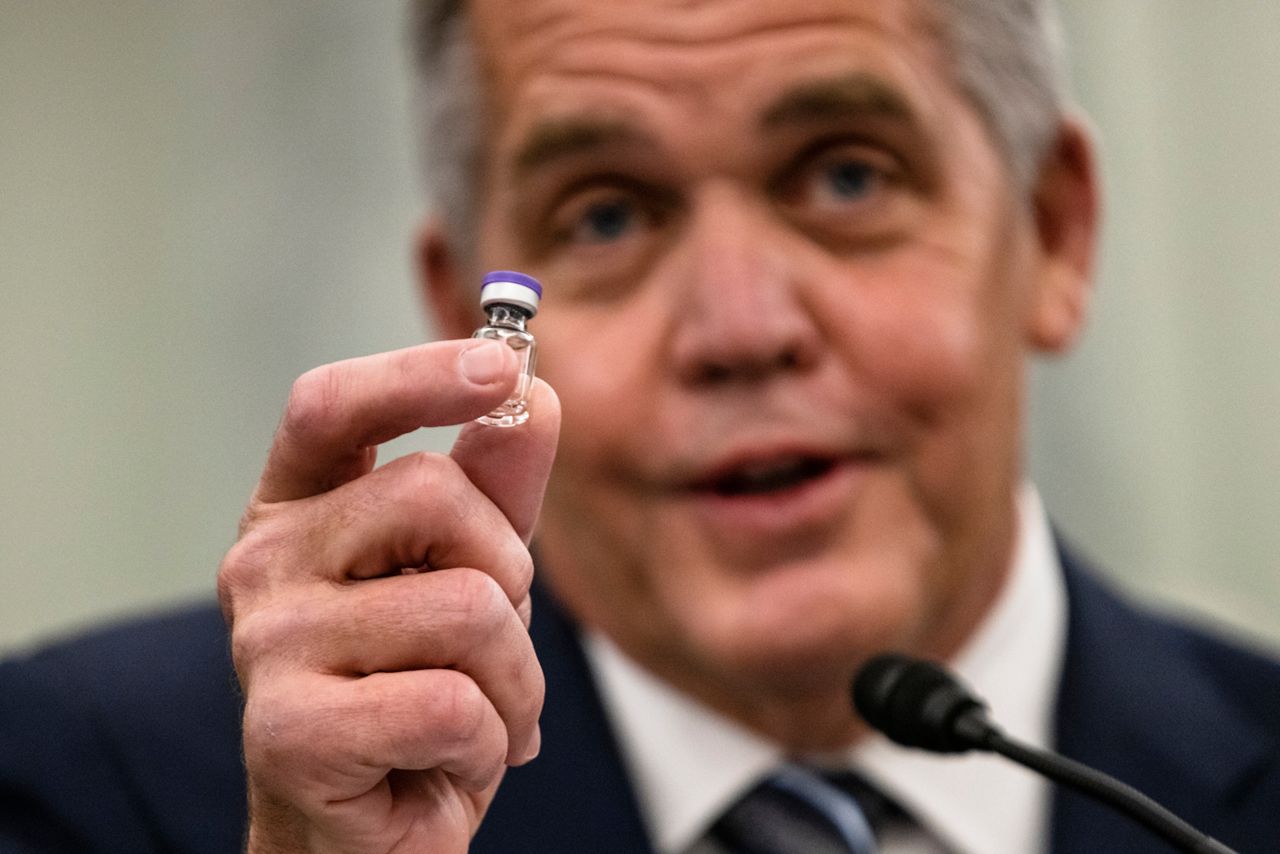
Before the box is sealed, another, more-technical layer goes on top, which contains both a temperature monitor and a GPS tracking device. The Pfizer vaccine can stay cold enough in its shipping box for ten days, if unopened.
The tracking device inside the box is just one of three ways that each box’s location will be monitored. UPS and FedEx will scan their shipping labels along the route as usual, and the companies will also attach a GPS device on the outside of boxes to track each shipment.
Both UPS and FedEx said they have command centers set up to monitor vaccines’ progress.
But the companies could face logistical hiccups and delays as Americans also send and place orders for holiday gifts, with Christmas Day two weeks away.
At the beginning of December, FedEx was delivering about 95 percent of packages on time, with UPS at just over 96 percent, both slightly down from the month before, according to ShipMatrix.
Already, major retailers like Kohl’s and J.C. Penney are encouraging customers to order their gifts earlier than usual to account for possible delays.
Still, representatives for both FedEx and UPS said they are confident in the vaccine distribution plan.
“We plan for surge events every year,” said Richard Smith, Regional President of the Americas at FedEx.
Smith also refuted claims that there wouldn’t be enough cargo planes to make the vaccine shipments. He said they will be factored into the thousands of flights they already do each week.
“We operate 8,000 flights a week, 32,000 flights a month,” Smith said. “There is plenty of air cargo capacity in our network.”
Already, vaccine kits are being shipped out across the country. They include face masks, alcohol wipes, needles and syringes – essentially everything needed for vaccination except the dose itself.
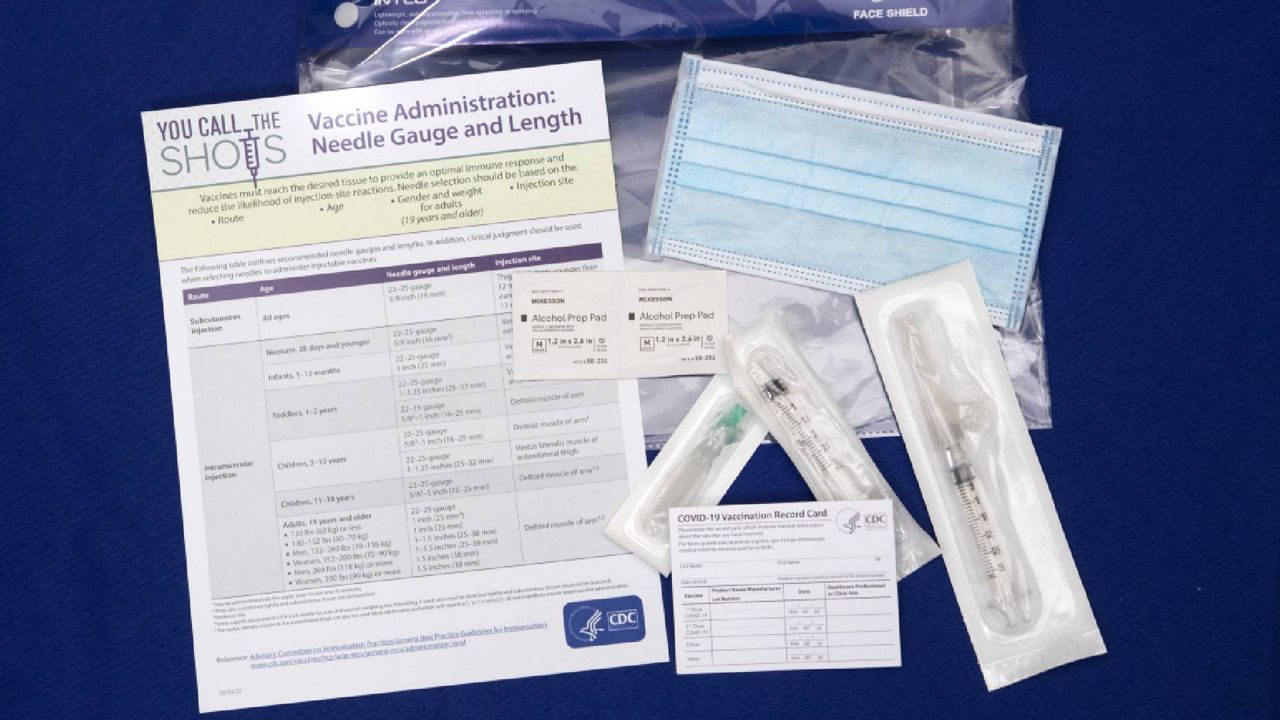
The Food and Drug Administration could issue an emergency authorization for the vaccine as soon as Friday night. Officials working on Operation Warp Speed have said the first wave of doses could go out within 24 hours of that authorization, but it’s unclear whether the weekend could slow that timeline.





